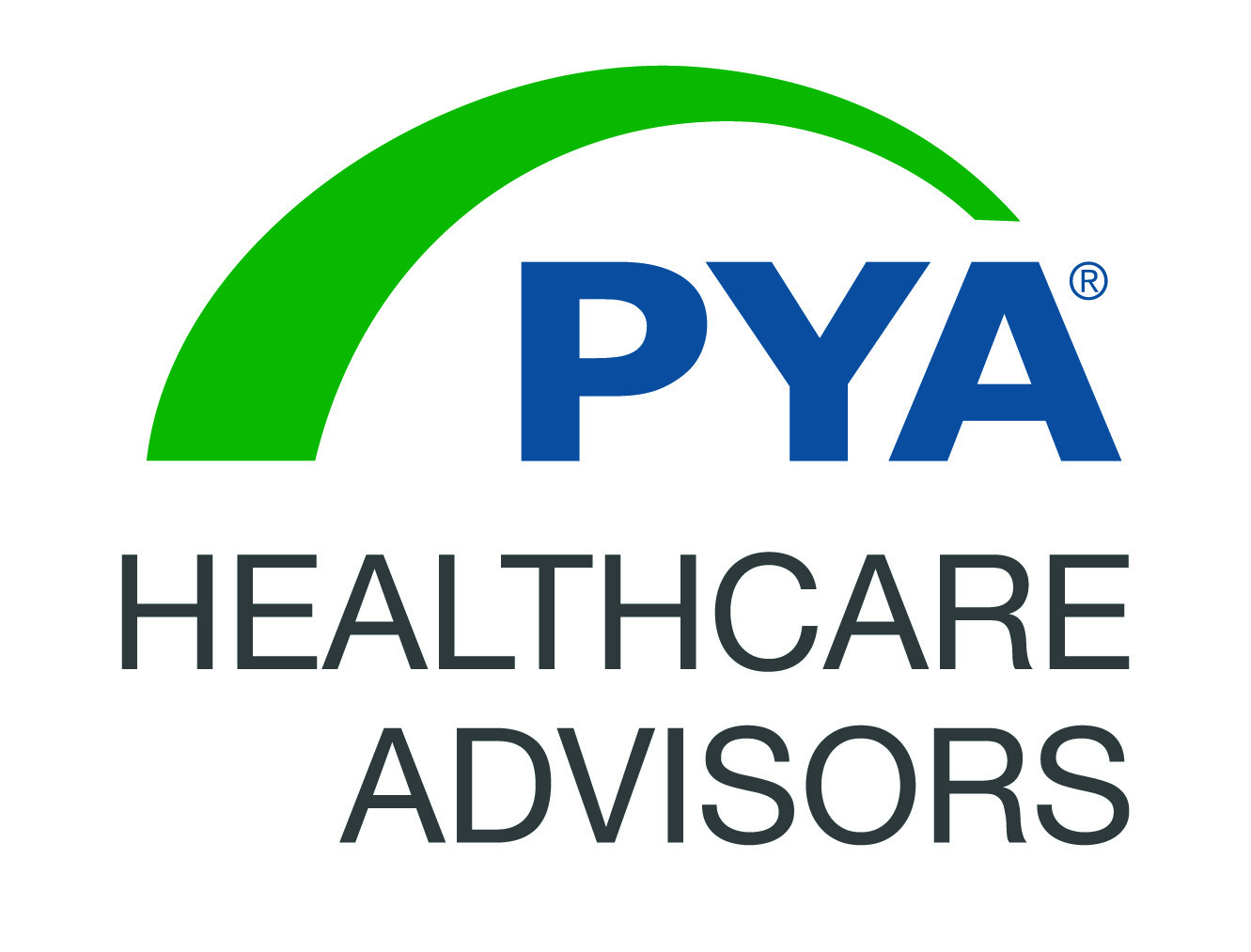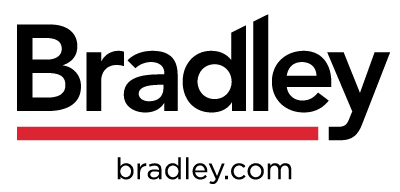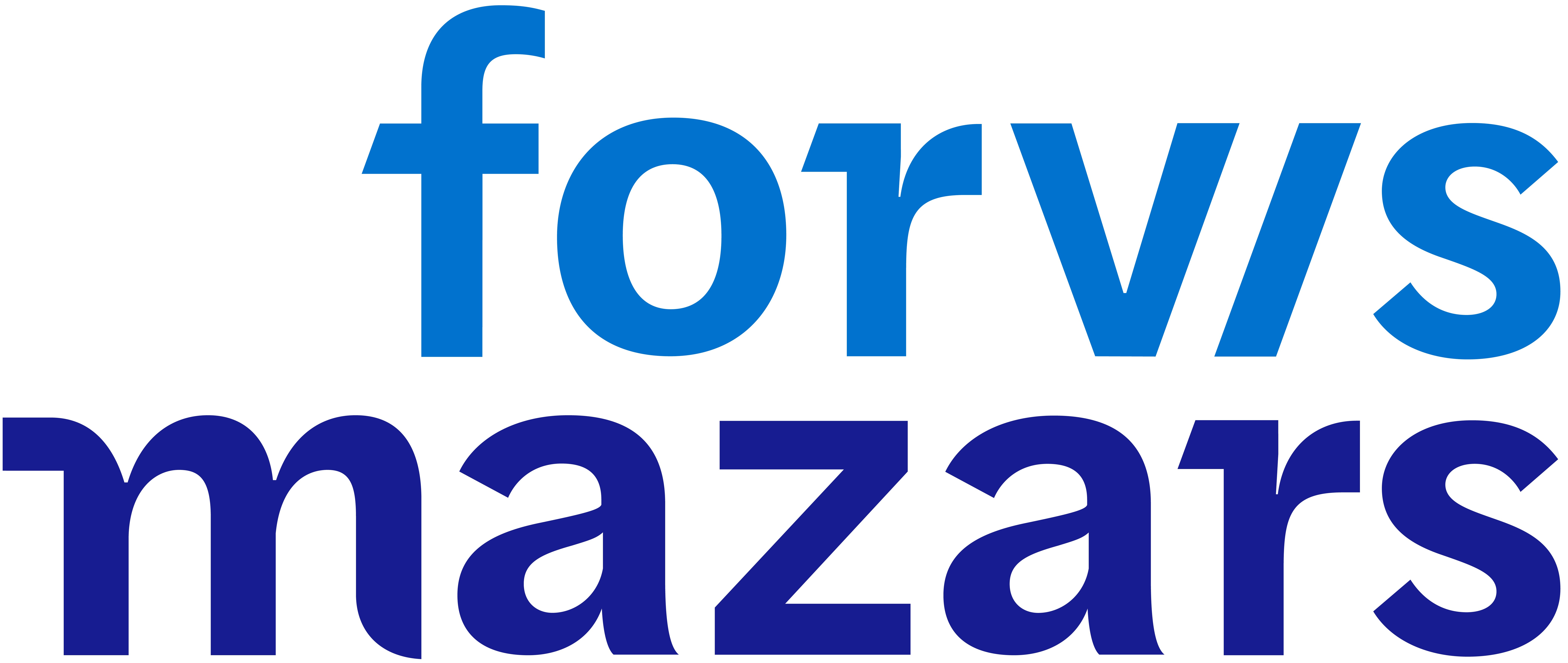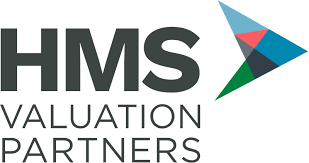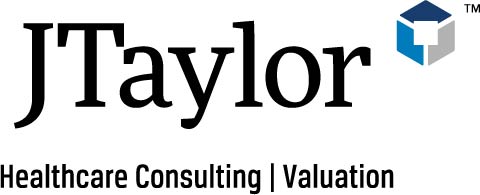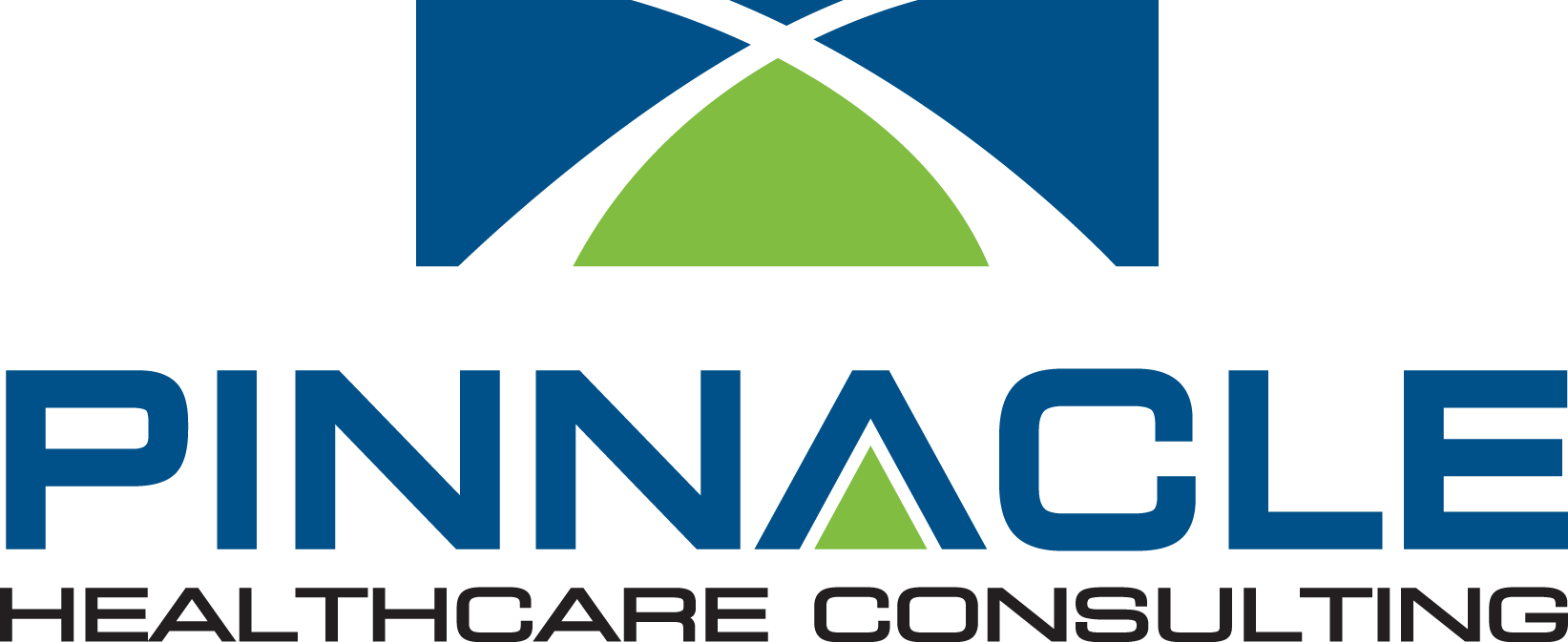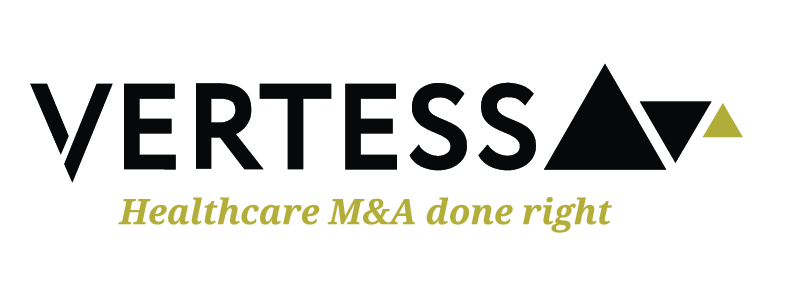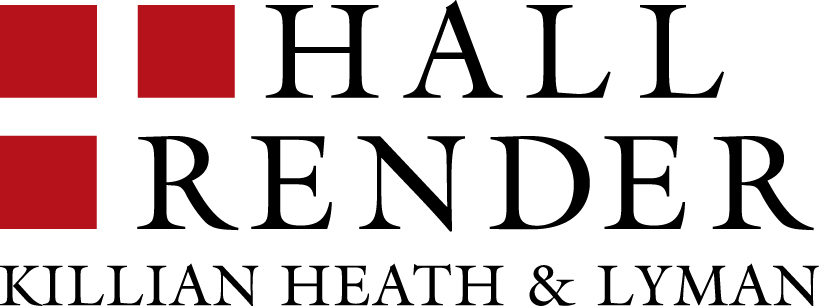Cookie Consent
This site uses cookies to store information on your computer. Without consent certain enhanced features will not be available and future visits may require repeated consent, so it is recommended to accept the use of cookies. Visit the AHLA Privacy Policy for more information.
Schedule
Monday, April 13, 2026
7:30 AM - 5:15 PM
Conference Attendee Assistance: Check-In and Badge Pick-Up
7:30 - 8:45 AM
Conference Breakfast
This event is included in the conference registration. Attendees, speakers, and registered guests are welcome. Interested in sponsoring this event? Sponsor.
8:45 - 10:15 AM
8:45-9:00 AM
Welcome and Introductions
Mark Kopson, AHLA President, Plunkett Cooney PC
Glenn Prives, Planning Committee Chair, Baker Donelson
9:00-10:15 PM
1. New 4-way Joint Venture for Developing and Operating ASCs
Gary Herschman (Moderator), Baker Donelson
Michael Ast, MD, Chief of the Knee Service and Director of ASC Strategy, HSS Physician
Jordan Fowler, CEO, Legent Health
Bowei Hao, Chief Strategy and Growth Officer, HSS
Jon Michael Reese, Principal, General Atlantic
10:15 - 10:45 AM
Coffee and Networking Break
Exhibits Open--Meet the Exhibitors. Interested in sponsoring this event? Sponsor.
10:45 AM - 12:00 PM
2. Primer on Health Care Transactions (not repeated)
Christi Braun, Chief Legal and Compliance Officer, IKS Health
Lauren Jacques, Bradley Arant
Michael F. Schaff, Wilentz Goldman & Spitzer PA
- Pre-Transaction Considerations
- Non-Disclosure/Confidentiality/Evaluation Material Agreements
- Letter of Intent/Term Sheet
- Choosing the Appropriate Acquisition Model
- Valuation and FMV
- Due Diligence
- Typical Contract Provisions
- Hidden Risks of Boilerplate Provisions
- Controlling the Process and Managing Expectations
- Post-Closing Transaction Issues
3. Work Force Issues in Health Care Transactions
Kelly Adams, Region General Counsel Company, Intermountain Health
Thomas Donohoe, VP, Deputy General Counsel, Banner Health
Barbara Grandjean, Husch Blackwell
- Key labor and employment risks commonly encountered during health care mergers, acquisitions, and other corporate transactions
- Strategies for effective due diligence related to employee benefits, union contracts, and workforce integration
- The role of regulatory compliance in workforce transitions, including considerations under federal and state health care laws
- Approaches for post-transaction workforce communication and cultural alignment to support retention and performance
- Mitigation tactics for minimizing litigation, liability, and disruption during workforce restructuring in health care entities
- Real-world case studies to distill best practices and lessons learned in managing labor and employment matters in health care transactions
4. Health System Transactions in Crisis Moments
Vic Domen, Lewis Brisbois
Kristy Piccinini, FTI Consulting
Terry Williams, Former Vice Chief Academic Medical Officer - Transformative Solutions, Atrium Health
- How should health care delivery be organized going forward?
- Where are the opportunities for transformative change before and during these crises?
- What is the right standard for evaluating investments, transformation, and transactions?
- Should regulators be taking new approaches to transaction/investment reviews?
12:00 - 1:15 PM
Lunch on your own
1:30 - 2:30 PM
5. Duets Done Right: Health Care Joint Ventures in 2026 and Beyond (not repeated)
Jennifer Hutchens, Dechert
Thomas Spellman, Associate General Counsel, Vice President, Fresenius Medical Care
- Different types of health care joint venture (“JV”) models and discuss when a JV may be a preferred structure to an acquisition or affiliation
- Map 2026 JV hot topics, as aligned with greater health care ecosystem trends
- Select legal and regulatory playbook considerations, including Stark, AKS, and corporate practice of medicine
- Understand economics and control in the context of health care JVs (e.g., capital contributions/funding, JV accounting, and distributions)
- Apply these lessons to a case study (tri party JV: hospital–PE–physicians) and highlight diligence and transactional considerations in practice
6. Seeing Around Corners: Fraud, Abuse, and Investigation Risks Too Often Missed in Transactions
Matthew M. Curley, Bass Berry & Sims PLC
Rachel Freyman, Senior Litigation and Regulatory Counsel, MultiCare Health System
- How False Claims Act, Anti-Kickback Statute, and Stark Law risks surface in transactions and why they’re often overlooked by deal teams
- Red flags in diligence, from billing and coding anomalies to physician compensation structures and pending whistleblower actions
- How unresolved compliance or litigation exposure can reshape valuation, purchase price adjustments, escrow, and indemnification terms
- DOJ/OIG enforcement trends that should inform current and future transaction strategies
7. Antitrust Hot Topics
Bryan Perry, FTI Consulting
Amanda Wait, Michael Best & Friedrich LLP
Christine L. White, EVP, Chief Legal Officer and General Counsel, Westchester Medical Center
2:45 - 4:00 PM
8. Transformative Tech Transactions – Contracting Strategies for Embracing Digital Health and Patient Engagement (not repeated)
Elizabeth F. Hodge, Akerman LLP
Gerard M. Nussbaum, Zarach Associates
Sean T. Sullivan, Alston & Bird
- An overview of the current legal and regulatory landscape governing RPM, interoperability, and artificial intelligence
- The legal risks and compliance strategies related to RPM and innovative technologies in provider settings
- Interoperability requirements and their impact on contracts, data governance, and patient access
- Payment and reimbursement challenges for emerging technologies and how to structure agreements accordingly
- Appropriate approaches for use of artificial intelligence in managing and gaining insights from varied data sources, including reliability, relevance, fit, safety, and privacy
- Strategies to enhance patient engagement across multiple provider systems and digital platforms
9. After the Ink Dries: Balancing Autonomy and Integration in Health Care Deals
Joseph Clamon, Vice President for Legal Affairs and Chief Clinical Strategy Officer, University of Iowa Health Care
Linas Grikis, Sheppard Mullin
Brent McDonald, Juniper Advisory
Beverly Oliver, General Counsel, SightGrowthPartners
- How health systems, academic medical centers, and private equity–backed platforms approach post-transaction integration and operational alignment
- Strategies for balancing seller autonomy with the need for standardization and systemwide alignment across clinical, operational, and governance functions
- How to structure and operationalize integration provisions—both pre-closing and post-closing—to minimize disruption and support long-term value creation
- Compare integration approaches across different buyer types, including nonprofit health systems and private equity–backed platforms, highlighting key cultural and governance differences
- Practical communication strategies for framing integration challenges and opportunities with CEOs, C-suite leaders, and boards
- Regulatory, compliance, and IT considerations that can affect post-deal success, including HIPAA, Stark/AKS, and data-sharing implications
10. Health Care M&A: Antitrust Enforcement Under Trump 2.0
Lindsey Bohl, Simpson Thacher & Bartlett
Jennifer Griffin, Chief Legal Officer, Amedisys
Karen Hunt, Deputy Assistant Director, Mergers IV, Federal Trade Commission
- Health care antitrust enforcement environment trends and priorities under the second Trump Administration, with a specific focus on M&A (application of 2023 merger guidelines, new HSR rules, and how the antitrust agencies are analyzing health care transactions–including horizontal and vertical transactions, quality competition, cross-market theories, roll-ups, failing firm defense, private equity involvement, etc.)
- Recent federal healthcare antitrust enforcement actions brought by the FTC, DOJ, and implications/takeaways for merging parties considering transactions
- State enforcement landscape and trend of state mini-HSR laws, with implications for transaction timing and merger agreement negotiations
- Antitrust counseling advice with practical takeaways for transactions including assessing and mitigating antitrust risk, merger agreement covenants, agency engagement strategy, and the role of economic analysis
4:15 - 5:15 PM
11. Managing your Ambulatory Services Empire: Using Transactions to Optimize Your Portfolio (not repeated)
Michael Ramey, PYA PC
Isaac “Ike” Willett, Faegre Drinker Biddle & Reath LLP
- Advanced hospital-physician alignment strategies in ambulatory ventures
- Evaluation and carve-outs of under-performing ventures to allow for business unit portfolio rebalancing. This will include case studies on how to divest or spin out non-core/underperforming services into joint ventures to provide capital for ambulatory investment
- Supporting operational success of consummated transactions through deal terms and due diligence that promote effective transition and integration
- Addressing the potential for an unwind in the event that things don’t go as planned
12. States' Renewed Focus on Corporate Practice of Medicine and its Impact on Health Care Transactions
Jonathan M. Joseph, Christian & Barton, LLP
Taryn E. Stone, Ice Miller
- The corporate practice of medicine doctrine and its history
- The approach of key states and pending legislation on CPOM
- Non-legislative corporate practice issues
- Recommend strategies for deal structuring, compliance planning and risk assessment in CPOM states
13. AI Contracting De-Mystified - Crucial Considerations
Carolyn V. Metnick, Sheppard Mullin Richter & Hampton LLP
Lauren Willens, Henry Ford Health
- How artificial intelligence (AI) disrupts traditional health care contracting models
- Key threshold diligence questions to ask before negotiating AI agreements
- Key legal terms in negotiating AI agreements
- Practical contracting takeaways and red flags for providers and counsel
- The importance of customer governance and AI use inventories to make audit rights effective
5:15 - 6:15 PM
Networking Reception, sponsored by VMG Health
This event is included in the conference registration. Attendees, speakers, and registered guests are welcome.
Tuesday, April 14, 2026
7:00 AM - 5:15 PM
Conference Attendee Assistance: Check-In and Badge Pick-Up
7:00 - 8:00 AM
Conference Breakfast
This event is included in the conference registration. Attendees, speakers, and registered guests are welcome. Interested in sponsoring this event? Sponsor.
8:00 - 9:00 AM
14. Structuring Health Care Joint Ventures: Legal Strategies and Fair Market Value Considerations (not repeated)
Taryn Nasr, VMG Health
Banee Pachuca, Winston & Strawn LLP
- Key Legal Structures–Explore the most active JV models in 2025, including traditional equity JVs (i.e. ASCs), MSO joint ownership models, contractual venture partnerships such as bundled payment arrangements, and the use of PSAs in lieu of a full JV
- Regulatory Compliance–Understand the legal frameworks that govern JV compliance and discuss best practices for compliance. This includes a deeper dive into Stark Law exceptions and AKS Safe Harbor Laws, where they are applicable and how to stay compliant, as well as state-specific corporate practice of medicine rules
- Governance and Control–Explore how JV partners are structuring financial and governance terms based on strategic goals of each party - profit allocation, control rights, exit provisions, auditing requirements, FMV assessments, management fee structures, etc.
- Risk Mitigation–Analyze case studies illustrating both successful and challenged JV models, highlighting key lessons in strategy and compliance. Discuss approaches to due diligence, documentation, and ongoing monitoring to identify and address potential legal and valuation pitfalls
15. The Greatest Risk in Health Care M&A Is the One You Don't See: How Compliance Due Diligence Uncovers What's Hidden Beneath the Surface
Ross Ronan, Ronan Healthcare Compliance
Monica Wallace, McDermott Will & Schulte LLP
- Why most compliance problems in health care transactions go undetected: The targets that look strongest on paper often carry the biggest blind spots. Learn what due diligence actually needs to uncover in billing practices, physician arrangements, and documentation gaps that standard financial reviews miss entirely
- What a real compliance audit reveals that spreadsheets can't: We'll walk through live examples of how error rate analysis, sanction screenings, and claims data sampling expose risks worth millions in potential liability. You'll see exactly how to translate audit findings into deal structure decisions like holdbacks, indemnifications, or walking away
- The hidden exposure no one calculates until it's too late: Discover how to quantify what "clean billing" really means, why a 35% error rate on one code can mean a $1 million problem over six years, and how to determine if you're looking at a notable finding or actual federal exposure
- Turning compliance findings into post close strategy: Once you know what's beneath the surface, learn how to build the monitoring systems and corrective action plans that protect your investment. We'll cover retrospective audits, ongoing compliance integration, and how to avoid becoming the next $25 million settlement headline
7. Antitrust Hot Topics (repeat)
Bryan Perry, FTI Consulting
Amanda Wait, Michael Best & Friedrich LLP
Christine L. White, EVP, Chief Legal Officer and General Counsel, Westchester Medical Center
9:15 - 10:15 AM
16. Disclose It or Not – A Fraud and Abuse Due Diligence Game (not repeated)
William T. Mathias, Bass, Berry & Sims
Matt Westbrook, Proskauer Rose
Lisa O. Wilson, Senior Technical Advisor, Centers for Medicare and Medicaid Services
This session will use a fun, fast-moving, game-show format to explore how health care organizations and investors should respond to potentially non-compliant activity discovered in the course of due diligence. Speakers from CMS (invited) and private practice will examine several hypothetical situations and discuss various disclosure options. We will explore hypotheticals from the perspective of both the buyer and seller. We will discuss the who, what, when, where, and how of whether the issues in the hypotheticals need to be disclosed or can be ignored.
17. Welcome to Lake Wobegon—Dealing with High-End Physician Compensation
Gerald M. Griffith, Jones Day
Clara Hurtt, SullivanCotter
- Legal parameters for assessing reasonableness of compensation
- Tracking effort and productivity – what counts in a FMV assessment
- What makes a Superstar – examining special skills, reputation and expertise
- Bridging the gap with facts and circumstances (i.e., business judgment factors)
- Employment vs. PSA – Straight Salary, Pooled and Other Models
6. Seeing Around Corners: Fraud, Abuse, and Investigation Risks Too Often Missed in Transactions (repeat)
Matthew M. Curley, Bass Berry & Sims PLC
Rachel Freyman, Senior Litigation and Regulatory Counsel, MultiCare Health System
- How False Claims Act, Anti-Kickback Statute, and Stark Law risks surface in transactions and why they’re often overlooked by deal teams
- Red flags in diligence, from billing and coding anomalies to physician compensation structures and pending whistleblower actions
- How unresolved compliance or litigation exposure can reshape valuation, purchase price adjustments, escrow, and indemnification terms
- DOJ/OIG enforcement trends that should inform current and future transaction strategies
10:15 - 10:45 AM
Coffee and Networking Break
Exhibits Open--Meet the Exhibitors. Interested in sponsoring this event? Sponsor.
10:45 AM - 12:00 PM
18. Navigating Increasing State Antitrust Scrutiny of Health Care Transactions (not repeated)
Herbert Allen, Honigman LLP
Shawn Gilman, VP, Senior Corporate Counsel, Providence St. Joseph Health
Elizabeth Odette, Assistant Attorney General, Office of the Minnesota Attorney General, and Chair of the Antitrust Task Force, National Association of Attorneys General (NAAG)
Bryn Williams, First Assistant Attorney General, Colorado Department of Law, Office of the Attorney General
- Trends in state antitrust enforcement in health care in the second Trump Administration
- The growing number of state premerger notification laws and the varied scope of review across states
- State advocacy pointers for in-house counsel
- When and how to influence state premerger notification laws before they are enacted
- Best practices for incorporating government affairs/lobbying into state-level advocacy
- How states are scrutinizing private equity transactions in health care, and what that means for your next deal
4. Health System Transactions in Crisis Moments (repeat)
Vic Domen, Lewis Brisbois
Kristy Piccinini, FTI Consulting
Terry Williams, Former Vice Chief Academic Medical Officer - Transformative Solutions, Atrium Health
- How should health care delivery be organized going forward?
- Where are the opportunities for transformative change before and during these crises?
- What is the right standard for evaluating investments, transformation, and transactions?
- Should regulators be taking new approaches to transaction/investment reviews?
9. After the Ink Dries: Balancing Autonomy and Integration in Health Care Deals (repeat)
Joseph Clamon, Vice President for Legal Affairs and Chief Clinical Strategy Officer, University of Iowa Health Care
Linas Grikis, Sheppard Mullin
Brent McDonald, Juniper Advisory
Beverly Oliver, General Counsel, SightGrowthPartners
- How health systems, academic medical centers, and private equity–backed platforms approach post-transaction integration and operational alignment
- Strategies for balancing seller autonomy with the need for standardization and systemwide alignment across clinical, operational, and governance functions
- How to structure and operationalize integration provisions—both pre-closing and post-closing—to minimize disruption and support long-term value creation
- Compare integration approaches across different buyer types, including nonprofit health systems and private equity–backed platforms, highlighting key cultural and governance differences
- Practical communication strategies for framing integration challenges and opportunities with CEOs, C-suite leaders, and boards
- Regulatory, compliance, and IT considerations that can affect post-deal success, including HIPAA, Stark/AKS, and data-sharing implications
12:00 - 1:15 PM
Lunch and Learn: Topic: Health Care Transactions: Lessons Learned from the Deal Table, sponsored by Fredrikson & Byron, PA
This interactive luncheon panel brings together seasoned health care transaction attorneys to dissect real-world deal experience—what worked, what failed, and what they would do differently. Designed for practitioners who routinely navigate acquisitions, affiliations, joint ventures, private equity investments, MSO structures, and physician alignment strategies, the session focuses on practical insights rather than theory. Panelists will discuss:
- Structuring considerations in an evolving regulatory environment
- Diligence pitfalls that materially impacted valuation or closing certainty
- Managing regulatory risk allocation in purchase agreements
- Post-closing surprises and integration failures
- Negotiation dynamics unique to health care transactions
- Ethical gray areas and client counseling challenges
There is no additional fee; limited attendance and pre-registration is required. Continuing Education Credits are not available.
1:30 - 2:30 PM
19. Mind the Gap: Structuring Variable Compensation and Earnouts in Health Care Transactions (not repeated)
Stephen Angelette, Polsinelli PC
Stephanie Bryant, Vice President, Associate General Counsel, Orthofix
Jennifer Kreick, Haynes and Boone, LLP
- Legal framework for use of variable compensation and earnouts in health care transactions (Stark, state and federal anti-kickback laws, EKRA, state fee splitting laws, etc.)
- Provide tools to evaluate variable compensation methodologies and earnouts, including an “Earnout Decision Tree” that participants can utilize in their practices
- Best practices for structuring variable compensation to reduce risk and strategies for designing compliant approaches that promote business goals but do not rely on inducing referrals
- Hypothetical fact scenarios to illustrate risk spectrum and note where they have received guidance from case law, DOJ enforcement, or discussions with government investigators
20. Why Tax Advisors Care About What’s in the Health Care Deal Documents (and Why You Should Too!)
Linda S. Moroney, Manatt Phelps & Phillips LLP
Donald B. Stuart, Holland & Knight
- Relevance of the tax status of the buyer and seller in approaching and negotiating hospital and other health care transactions
- Significance of tax in identifying the preferred (or acceptable) deal structure and the tax consequences for the parties
- Importance of tax due diligence, including how disclosures impact the agreement and parties, and who has the institutional knowledge and responsibility for taxes
- Understanding tax representations, conditions, covenants, and indemnification provisions
- A deeper tax dive into the agreements–tax deliverables, tax prorations, tax allocations, tax return preparation and filing, tax elections, tax cooperation, access to records, and tax payments
- Anticipating potential disputes–post-closing tax claims, purchase price adjustments, and tax indemnification (including R&W and tax insurance)
21. LOI to Integration: Key Corporate and Operational Considerations in Post-Acute Care Transactions and Affiliations
David Brooks, Withum
Adam Royal, Husch Blackwell, LLP
This presentation applies a legal and financial approach to the lifecycle of hospice, home health, and other post-acute care transactions. The presentation identifies key legal and regulatory considerations for transaction structure, such as the 36-Month Rule, recent enforcement of CMS Periods of Enhanced Provider Oversight, structuring deals to comply with Medicare Conditions of Participation, and regulatory filings triggered by health care transactions. It also reviews all aspects of health care transactions—from due diligence, closing, and post-closing integration—from a financial and operational perspective to provide tips for ensuring financial sustainability and strengthen overall financial performance.
2:45 - 3:45 PM
22. The Advice of Counsel Defense - Giving the Client Everything They Paid For (not repeated)
David Honig, Hall Render Killian Heath & Lyman
Erin Lewis, Executive Vice President and Chief Administrative Officer and General Counsel, Indiana University Health
23. Good, Better, Best - Quality of Earnings (QofE), Quality of Compliance (QofC) and Shareholder Alignment: Interweaving Business Intent and Regulatory Reality
James Bowden, Senior Managing Counsel-Development, United Surgical Partners International Inc.
Rajesh U. Kothari, Cascade Partners
Ethan Rii, Ice Miller
- Overview and Legal Considerations regarding Quality of Earnings, which often miss the compliance and regulatory drivers of cash flow—coding errors, overpayments, outlier payments, audit exposure, fraud/abuse risks— and can dramatically change valuation, shift deal pricing, and undermine deal structure
- Provide best practices in drafting legal provisions to better capture health care regulatory risk – tailored representations and warranties, clear definitions of “losses,” indemnity provisions that actually work and disclosures that connect diligence findings to deal modeling
- How to best frame regulatory exposures falling outside RWI coverage, structuring bespoke indemnities, escrow structures, and survival periods aligned with recoupment models, audit cycles, and rollover equity dynamics
- Address long term deal performance and aligning incentives between investors and providers and articulating that appropriately through rollover equity, compensation, leverage, and control – to prevent post closing disengagement or value erosion
12. States' Renewed Focus on Corporate Practice of Medicine and its Impact on Health Care Transactions (repeat)
Jonathan M. Joseph, Christian & Barton, LLP
Taryn E. Stone, Ice Miller
- The corporate practice of medicine doctrine and its history
- The approach of key states and pending legislation on CPOM
- Non-legislative corporate practice issues
- Recommend strategies for deal structuring, compliance planning and risk assessment in CPOM states
3:45 - 4:15 PM
Coffee and Networking Break
Exhibits Open--Meet the Exhibitors. Interested in sponsoring this event? Sponsor.
4:15 - 5:15 PM
24. Red Tape to Green Light: Licensure, Certification and Enrollment in Health Care Transactions (not repeated)
Emily W.G. Towey, Hancock Daniel
Jeanne L. Vance, Weintraub Tobin
- Sequencing government filings and responsibility, pre and post-closing
- Assuming the Medicare provider agreement in changes of ownership by accident or on purpose; mechanics and implications
- Bridging the communication gap between transactions counsel or private equity buyers and government agencies so that everyone gets to closure upon closing
- Special topics for licensing and Medicare enrollment in transactions: buying part of a hospital, consolidating hospitals, purchase and simultaneous relocation, 36-month rule for HHAs and Hospices, and state law material change transaction notices or approval processes
- Practical tips for the sale agreement including the due diligence process, representations and warranties, and sequencing filings, and closing to manage expectations of transaction participants
25. Taking Stock of Your Strategic Partnerships: What to Do When the Well Runs Dry
Annapoorani Bhat, PYA PC
Jeanna P. Gunville, Morgan Lewis
- Overview of types of strategic partnerships, and their role in the healthcare eco-system
- Contractual considerations when negotiating and executing strategic partnerships – specific to unwind provisions
- Evaluation of potential consequences of an unwind, both legal and financial
- Case studies of tricky unwind provisions – legal and valuation perspectives
- Planning for future strategic alliances
26. Legal Ethics: How to Be Ethical in an Ever-Changing World
Kim Harvey Looney, K & L Gates
Robert G. Homchick, Davis Wright Tremaine
- How do you determine who is your client?
- What duties do you owe your client, past client, and prospective client?
- How are clients using AI?
- How does the use of AI affect your ethical Duties?
- What happens when they clash?
- Model Rules and State Requirements
5:15 - 6:30 PM
Networking Mixer
This event is included in the conference registration. Attendees, speakers, and registered guests are welcome. Interested in sponsoring this event? Sponsor.
Wednesday, April 15, 2026
7:00 AM - 1:00 PM
Conference Attendee Assistance
7:00 - 8:00 AM
Conference Breakfast
This event is included in the conference registration. Attendees, speakers, and registered guests are welcome. Interested in sponsoring this event? Sponsor.
8:00 - 9:15 AM
27. Representing the Founders, Investors, and Inventors of Health Care AI: Venture Capital and Emerging Companies (not repeated)
Carrie Kibler, General Counsel, Yosemite Management
Andrea Linna, Wilson Sonsini Goodrich and Rosati
3. Work Force Issues in Health Care Transactions (repeat)
Kelly Adams, Region General Counsel Company, Intermountain Health
Thomas Donohoe, VP, Deputy General Counsel, Banner Health
Barbara Grandjean, Husch Blackwell
- Key labor and employment risks commonly encountered during health care mergers, acquisitions, and other corporate transactions
- Strategies for effective due diligence related to employee benefits, union contracts, and workforce integration
- The role of regulatory compliance in workforce transitions, including considerations under federal and state health care laws
- Approaches for post-transaction workforce communication and cultural alignment to support retention and performance
- Mitigation tactics for minimizing litigation, liability, and disruption during workforce restructuring in health care entities
- Real-world case studies to distill best practices and lessons learned in managing labor and employment matters in health care transactions
10. Health Care M&A: Antitrust Enforcement Under Trump 2.0 (repeat)
Lindsey Bohl, Simpson Thacher & Bartlett
Jennifer Griffin, Chief Legal Officer, Amedisys
Karen Hunt, Deputy Assistant Director, Mergers IV, Federal Trade Commission
- Health care antitrust enforcement environment trends and priorities under the second Trump Administration, with a specific focus on M&A (application of 2023 merger guidelines, new HSR rules, and how the antitrust agencies are analyzing health care transactions–including horizontal and vertical transactions, quality competition, cross-market theories, roll-ups, failing firm defense, private equity involvement, etc.)
- Recent federal healthcare antitrust enforcement actions brought by the FTC, DOJ, and implications/takeaways for merging parties considering transactions
- State enforcement landscape and trend of state mini-HSR laws, with implications for transaction timing and merger agreement negotiations
- Antitrust counseling advice with practical takeaways for transactions including assessing and mitigating antitrust risk, merger agreement covenants, agency engagement strategy, and the role of economic analysis
9:30 - 10:30 AM
13. AI Contracting De-Mystified - Crucial Considerations (repeat)
Carolyn V. Metnick, Sheppard Mullin Richter & Hampton LLP
Lauren Willens, Henry Ford Health
- How artificial intelligence (AI) disrupts traditional health care contracting models
- Key threshold diligence questions to ask before negotiating AI agreements
- Key legal terms in negotiating AI agreements
- Practical contracting takeaways and red flags for providers and counsel
- The importance of customer governance and AI use inventories to make audit rights effective
25. Taking Stock of Your Strategic Partnerships: What to Do When the Well Runs Dry (repeat)
Annapoorani Bhat, PYA PC
Jeanna P. Gunville, Morgan Lewis
- Overview of types of strategic partnerships, and their role in the healthcare eco-system
- Contractual considerations when negotiating and executing strategic partnerships – specific to unwind provisions
- Evaluation of potential consequences of an unwind, both legal and financial
- Case studies of tricky unwind provisions – legal and valuation perspectives
- Planning for future strategic alliances
26. Legal Ethics: How to Be Ethical in an Ever-Changing World (repeat)
Kim Harvey Looney, K & L Gates
Robert G. Homchick, Davis Wright Tremaine
- How do you determine who is your client?
- What duties do you owe your client, past client, and prospective client?
- How are clients using AI?
- How does the use of AI affect your ethical Duties?
- What happens when they clash?
- Model Rules and State Requirements
10:45 - 11:45 AM
15. The Greatest Risk in Health Care M&A Is the One You Don't See: How Compliance Due Diligence Uncovers What's Hidden Beneath the Surface (repeat)
Ross Ronan, Ronan Healthcare Compliance
Monica Wallace, McDermott Will & Schulte LLP
- Why most compliance problems in health care transactions go undetected: The targets that look strongest on paper often carry the biggest blind spots. Learn what due diligence actually needs to uncover in billing practices, physician arrangements, and documentation gaps that standard financial reviews miss entirely
- What a real compliance audit reveals that spreadsheets can't: We'll walk through live examples of how error rate analysis, sanction screenings, and claims data sampling expose risks worth millions in potential liability. You'll see exactly how to translate audit findings into deal structure decisions like holdbacks, indemnifications, or walking away
- The hidden exposure no one calculates until it's too late: Discover how to quantify what "clean billing" really means, why a 35% error rate on one code can mean a $1 million problem over six years, and how to determine if you're looking at a notable finding or actual federal exposure
- Turning compliance findings into post close strategy: Once you know what's beneath the surface, learn how to build the monitoring systems and corrective action plans that protect your investment. We'll cover retrospective audits, ongoing compliance integration, and how to avoid becoming the next $25 million settlement headline
17. Welcome to Lake Wobegon—Dealing with High-End Physician Compensation (repeat)
Gerald M. Griffith, Jones Day
Clara Hurtt, SullivanCotter
- Legal parameters for assessing reasonableness of compensation
- Tracking effort and productivity – what counts in a FMV assessment
- What makes a Superstar – examining special skills, reputation and expertise
- Bridging the gap with facts and circumstances (i.e., business judgment factors)
- Employment vs. PSA – Straight Salary, Pooled and Other Models
20. Why Tax Advisors Care About What’s in the Health Care Deal Documents (and Why You Should Too!) (repeat)
Linda S. Moroney, Manatt Phelps & Phillips LLP
Donald B. Stuart, Holland & Knight
- Relevance of the tax status of the buyer and seller in approaching and negotiating hospital and other health care transactions
- Significance of tax in identifying the preferred (or acceptable) deal structure and the tax consequences for the parties
- Importance of tax due diligence, including how disclosures impact the agreement and parties, and who has the institutional knowledge and responsibility for taxes
- Understanding tax representations, conditions, covenants, and indemnification provisions
- A deeper tax dive into the agreements–tax deliverables, tax prorations, tax allocations, tax return preparation and filing, tax elections, tax cooperation, access to records, and tax payments
- Anticipating potential disputes–post-closing tax claims, purchase price adjustments, and tax indemnification (including R&W and tax insurance)
12:00 - 1:00 PM
21. LOI to Integration: Key Corporate and Operational Considerations in Post-Acute Care Transactions and Affiliations (repeat)
David Brooks, Withum
Adam Royal, Husch Blackwell, LLP
This presentation applies a legal and financial approach to the lifecycle of hospice, home health, and other post-acute care transactions. The presentation identifies key legal and regulatory considerations for transaction structure, such as the 36-Month Rule, recent enforcement of CMS Periods of Enhanced Provider Oversight, structuring deals to comply with Medicare Conditions of Participation, and regulatory filings triggered by health care transactions. It also reviews all aspects of health care transactions—from due diligence, closing, and post-closing integration—from a financial and operational perspective to provide tips for ensuring financial sustainability and strengthen overall financial performance.
23. Good, Better, Best - Quality of Earnings (QofE), Quality of Compliance (QofC) and Shareholder Alignment: Interweaving Business Intent and Regulatory Reality (repeat)
James Bowden, Senior Managing Counsel-Development, United Surgical Partners International Inc.
Rajesh U. Kothari, Cascade Partners
Ethan Rii, Ice Miller
- Overview and Legal Considerations regarding Quality of Earnings, which often miss the compliance and regulatory drivers of cash flow—coding errors, overpayments, outlier payments, audit exposure, fraud/abuse risks— and can dramatically change valuation, shift deal pricing, and undermine deal structure
- Provide best practices in drafting legal provisions to better capture health care regulatory risk – tailored representations and warranties, clear definitions of “losses,” indemnity provisions that actually work and disclosures that connect diligence findings to deal modeling
- How to best frame regulatory exposures falling outside RWI coverage, structuring bespoke indemnities, escrow structures, and survival periods aligned with recoupment models, audit cycles, and rollover equity dynamics
- Address long term deal performance and aligning incentives between investors and providers and articulating that appropriately through rollover equity, compensation, leverage, and control – to prevent post closing disengagement or value erosion
Have a Question?
We're here to help! Click on a topic below to send us an email with your inquiry:
- Conference Information - materials, attendee web access
- Continuing Education Credits - number of credits, how to get credits, accessing certificates
- Sponsorship Opportunities
- Billing - receipts, confirmations, login information, etc.
- Cancellations and/or Substitutions
Conference Accessibility and Special Needs
AHLA is committed to ensuring equitable access to our educational content. We are continually improving the user experience for everyone and offering accessibility accommodations for our in-person conferences.
Thank You to Our Sponsors
